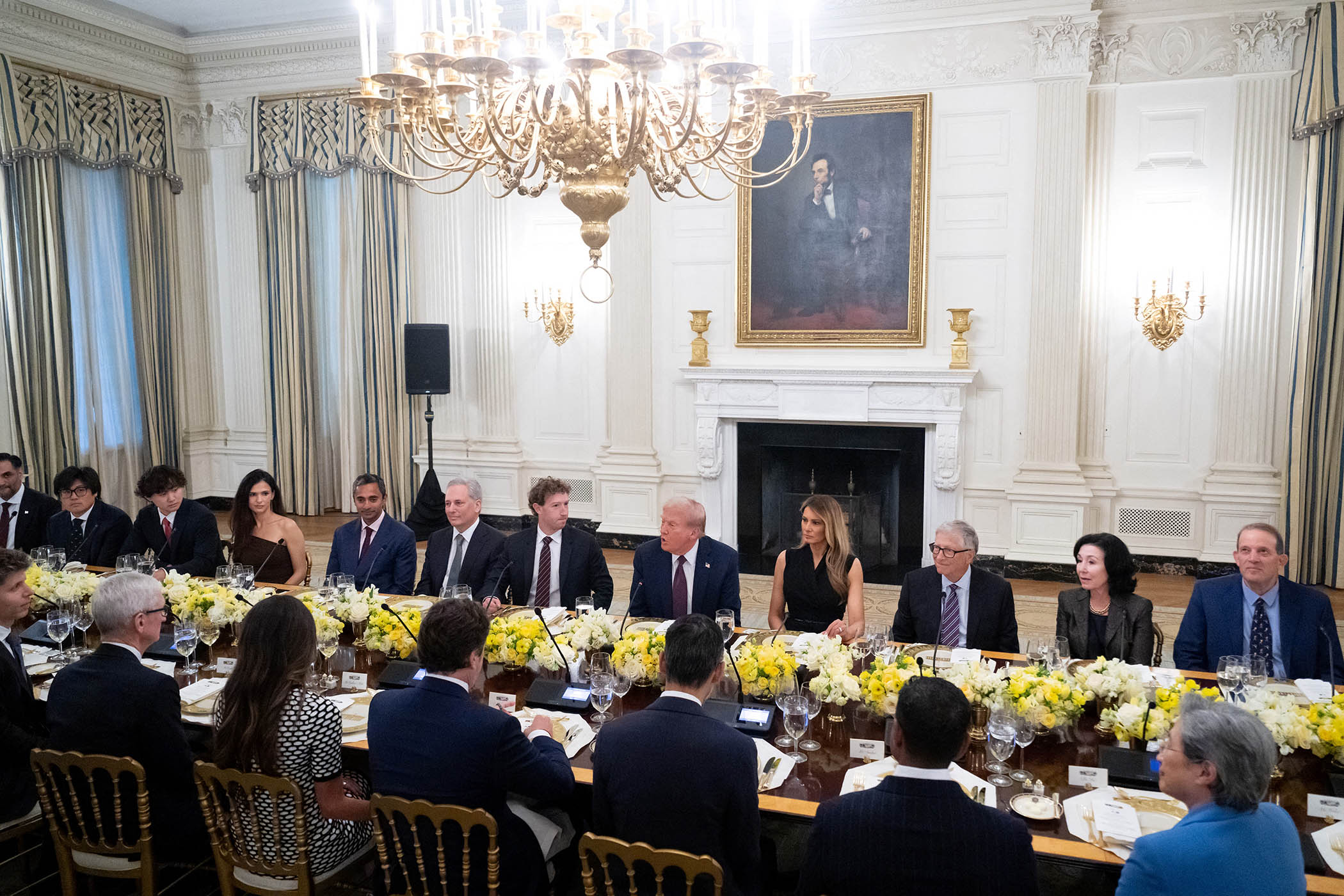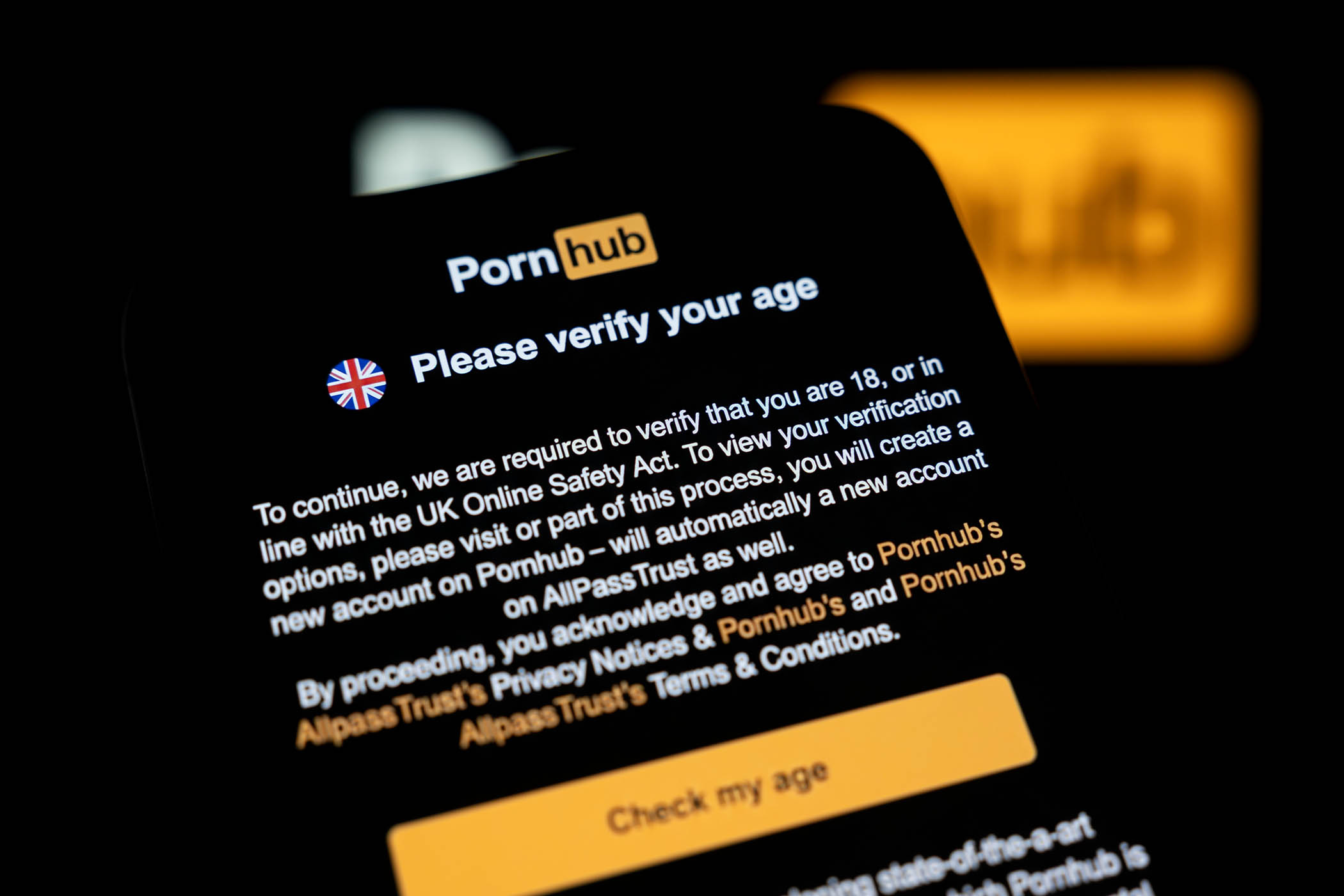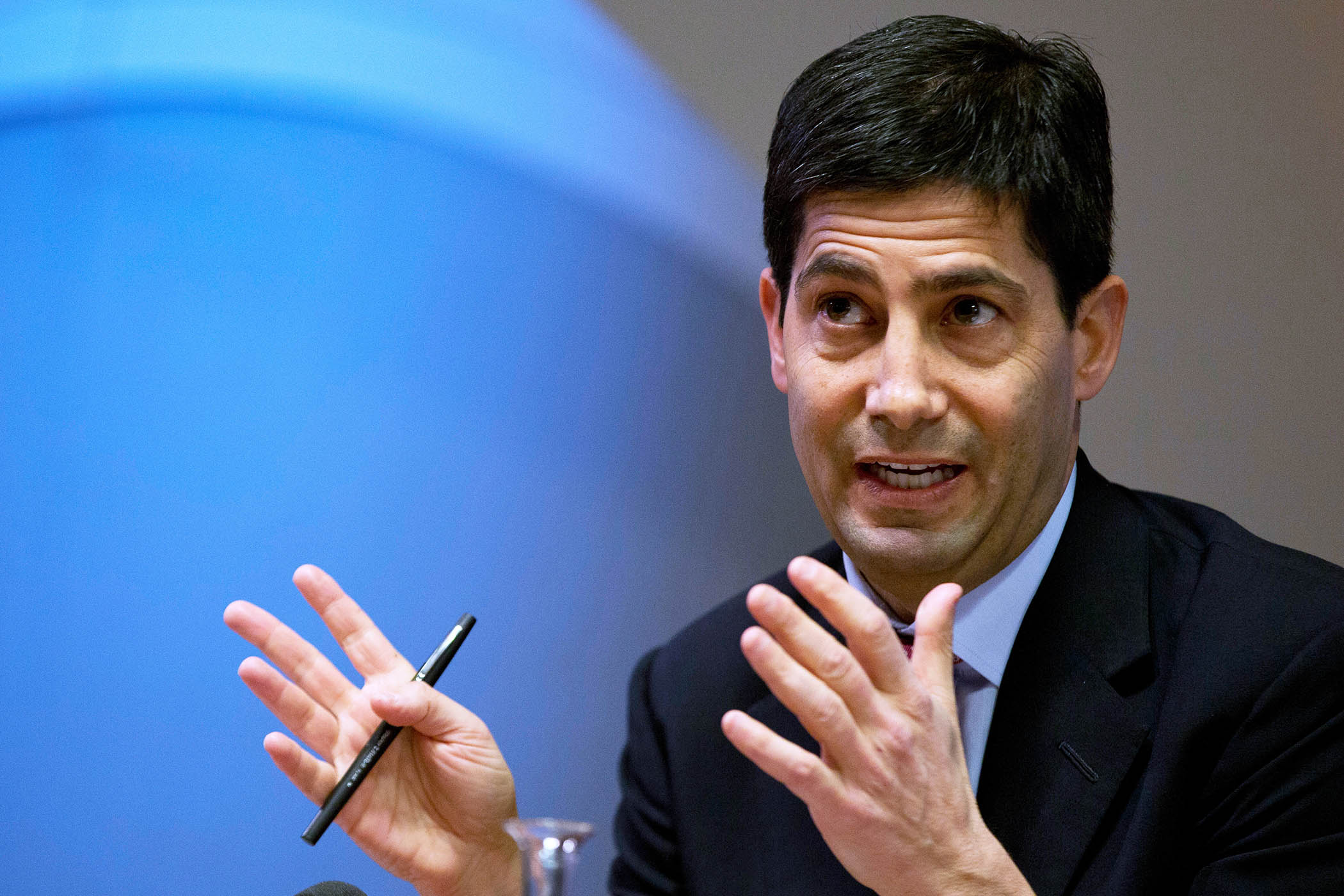Attempts to crawl higher up the White House’s infamous “corporate loyalty list” continue. The Titans of Tech turned out en masse at Thursday’s dinner with the president to celebrate Melania Trump’s new AI in education initiative. They were on their best behaviour (Elon Musk wisely sent a substitute) because relations between big tech firms and the government are at a delicate moment.
The dinner speech of Sundar Pichai, CEO of Google and its parent company Alphabet, oozed appreciation of the First Couple. Google had dodged a bullet a couple of days earlier. Having been convicted previously of market dominance in online search, the judge considering punishment and remedies declined either to break up the firm by forcing it to sell its Chrome browser, or to stop it paying Apple a fortune to promote Google products on its gadgets. Google’s share price (and Apple’s) jumped on the news.
After the verdict, the US government said it remains determined to keep going after Google and other tech monopolists, including by seeking the sort of classic antitrust enforcement that broke up JD Rockefeller’s Standard Oil in the 1920s and telecoms giant AT&T in the 1970s. The current Google case began in 2020, during Donald Trump’s first term, over concerns that a lack of competition harmed consumers. Antitrust enforcement intensified during the Biden administration, led by Lina Khan.
Yet this administration may see antitrust differently from its predecessors: less about protecting consumers, more about projecting political power over big business. After the recent treatment of Intel it would surprise no tech leader sucking up to Trump last week if he were to use the threat of pursuing a break-up to get them to do his bidding in all sorts of once unthinkable ways, including selling the government cut-price equity stakes in their companies.
Photograph by Saul Loeb/AFP via Getty Images
Newsletters
Choose the newsletters you want to receive
View more
For information about how The Observer protects your data, read our Privacy Policy
Related articles:



